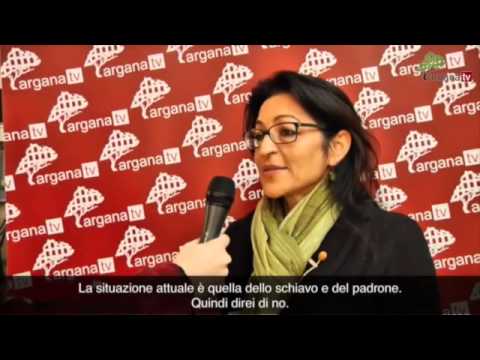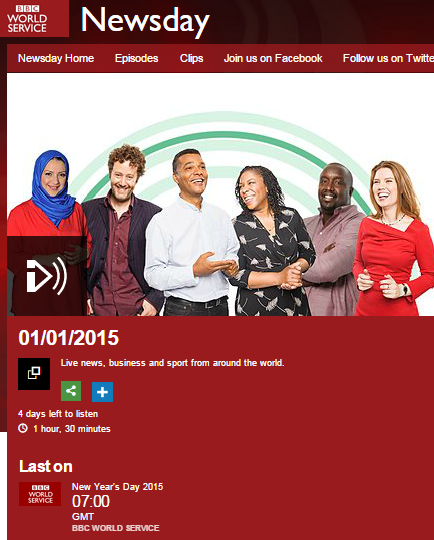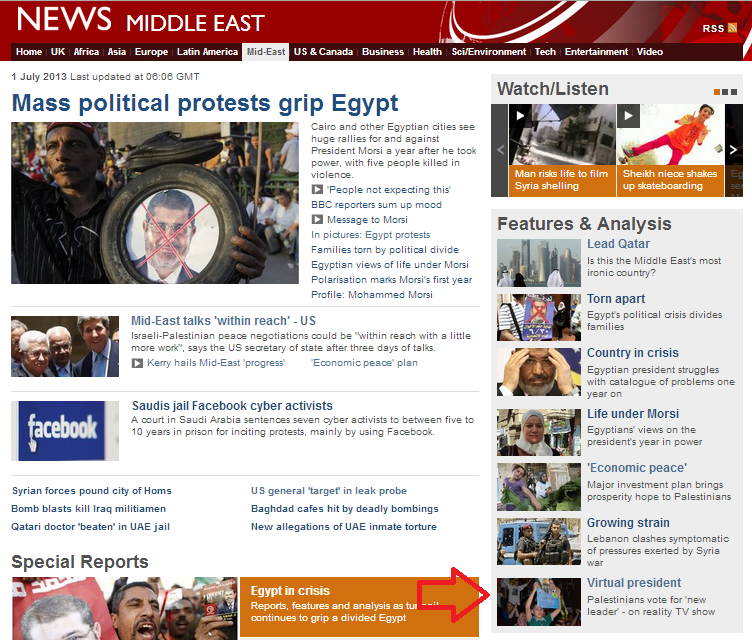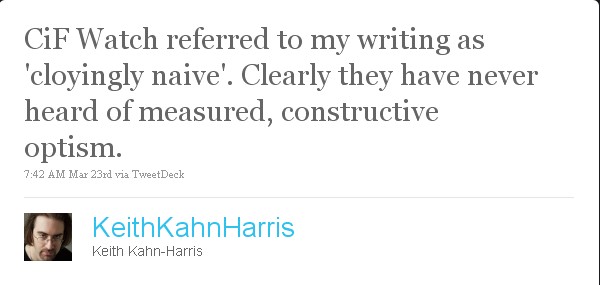The UN defines human rights as “rights inherent to all human beings, whatever our nationality, place of residence, sex, national or ethnic origin, colour, religion, language, or any other status”. A person portrayed to BBC audiences as a human rights activist will therefore certainly not be understood to be a campaigner for the negation of the rights of a particular group of people.
If one happened to be in Fort Lauderdale last November one could have heard Susan Abulhawa speaking for an organization which negates the right of Jews to self-determination. If one happened to have attended the annual BDS-supporting ‘PalFest’ during the last couple of years, one would also have found Susan Abulhawa there – and subsequently promoting the notion that Israelis must apologise for “the most basic fact of Israel’s existence”. Or one could just take a look at her Facebook posts in order to understand that universal human rights are most certainly not at the top of Abulhawa’s activist agenda.
Nevertheless, listeners to the June 15th edition of the BBC World Service radio programme ‘The Arts Hour’ heard an interview with Abulhawa (available here from 27:38 for a limited period of time or here as a clip without the introduction) in which presenter Nikki Bedi introduced her as follows: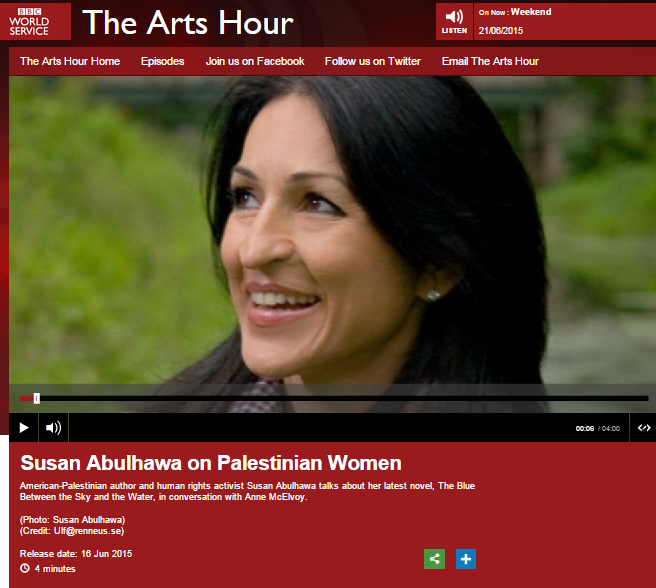
“To literature first though and a Palestinian-American writer and human rights activist, Susan Abulhawa, whose first book ‘Mornings in Jenin’ was an international best-seller about four generations of a Palestinian family set against Palestinian-Israeli tensions. Susan Abulhawa’s new novel – The Blue Between the Sky and the Water – treads similar ground as we follow the Baraka family whose lives are disrupted when Israeli forces enter Gaza and the family is forced to flee. Six decades later, the threats of those events and the personal tragedies that went with them bring Nur, a grandchild of the family now living in America, into an unexpected closeness with the past. In the novel we get both a real texture of daily Palestinian life and yet also a sense of how history affects a family.” [emphasis added]
Bedi also tells listeners that interviewer Anne McElvoy spoke to the writer “noting how Susan Abulhawa humanised the story rather than using politics to tell us what was going on.”
Indeed, McElvoy remarks to Abulhawa:
“And you’re humanising a narrative that’s often told from the position of high politics or legal territorial language so it’s [a] very different way of approaching it….”
Just how far Abulhawa’s novel is ‘removed’ from politics is evident later on in the interview when the writer describes it as being about four generations of women “who are navigating their lives, their marriages, their births, illnesses, education, etcetera, under a military occupation – and a very violent one – and an economic siege that’s quite forbidding.”
The interview also includes the following from Abulhawa:
“I think narrative…narrative is an important part of every culture. It is especially important for societies that have been marginalised or violated in ways and, in particular in the case of the Palestinians, societies who are completely negated and denied; whose existence is denied. So narratives, in a way, and the right to tell one’s story in one’s own voice – not having other people speak for you and about you, which has been the case for decades with Palestinians – but to tell one’s own stories in one’s own voice is an important part of identity. It’s a part of a society’s collective memory.”
Susan Abulhawa is a writer and a political activist and her politics include the negation of a basic human right for a particular group of people. That information is critical to understanding her words and her work in their correct context but, rather than meeting the BBC’s own editorial guidelines on impartiality by disclosing Abulhawa’s ‘standpoint’ to listeners, this programme used the ‘halo effect’ of the misapplied label ‘human rights activist’ in order to whitewash the political agenda behind both the interviewee and her book.
Perhaps the BBC would care to tell its funding public why its use of the term ‘human rights activist’ does not embrace the accepted principle of the universality of human rights.
Related Articles:
Guardian whitewashes the extremism of Susan Abulhawa (The Facebook updates) (UK Media Watch)
Resources:
BBC World Service – contact & complaints

